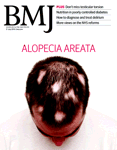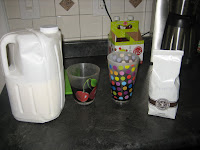Calcium and Coffee---Getting to the Heart of the Matter

Very big news from the British Medical Journal. It turns out that calcium supplements can increase the risk of heart attacks. In a combined analysis of 11 clinical trials that included almost 12,000 people with an average age of 72, people taking calcium had a 2.7% risk of having a heart attack over a 4-year period, compared with 2.2% for those taking placebo pills. A slight increase to be sure---but that translates into an approximately 30% higher risk and potentially a lot more heart attacks.
This study garnered a great deal of attention---and rightfully so. Heart disease is a leading cause of death in the United States. A recent study about coffee and heart health has not been as well publicized, but the results are interesting and instructive. A study of 374 patients who had experienced an acute coronary event showed that if they had normal blood pressure and they drank 1 to 2 cups of coffee a day, they decreased their risk of left ventricular systemic dysfunction (LVSD) by 88%, compared with similar patients who did not drink coffee. This positive effect was not true for people with high blood pressure, however.

Sometimes, positive data about coffee goes unrecognized....Likewise, sometimes no-name coffee get a bad name. I for one like brand-name coffee---but the reality is good coffee lurks in improbable places--namely random delis scattered throughout NYC. I especially like the coffee from a deli on 28th and 5th. Good stuff. Smooth and deep and rich---but definitely in need of some mediation, generally in the form of skim milk. Still it's good.
So here's to drinking good coffee wherever you find it and thinking more about coffee and its potentially positive effects on our cardiovascular system.


Comments
However, with all of the Kombucha, Goji Berries, Raw Cacoa that I consume daily, drinking regular coffee is more of a chill-out than a pick-me-up as I've become highly-tolerant from the caffeine and instead enjoy its nice opiate effects.
Alma---I think that you are young yet to be concerned. The study is based on a significantly older cohort. Drink up!